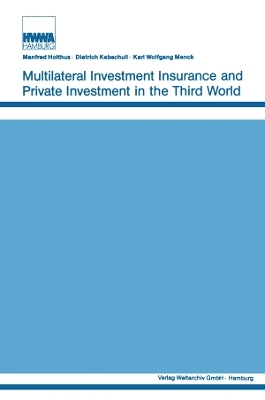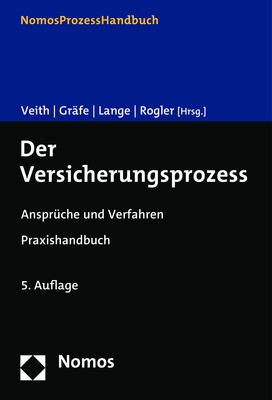
Multilateral Investment Insurance and Private Investment in the Third World
Seiten
2020
Routledge (Verlag)
978-1-138-52847-5 (ISBN)
Routledge (Verlag)
978-1-138-52847-5 (ISBN)
The flow of capital to Third World countries in recent years has been less than expected for realizing their growth objectives. The authors analyze and comment on the necessity and suitability of a World Bank proposal to address this.
The flow of capital to Third World countries in recent years has been less than expected for realizing their growth objectives. As a consequence, efforts have been redoubled to attract capital in the form of direct investment. The World Bank has proposed the establishment of a multilateral guarantee scheme, encompassing as many investing and host countries as possible, to reduce the risks associated with overseas investment.The authors analyze and comment on the necessity and suitability of the World Bank proposal. They examine earlier proposals for setting up multi lateral guarantee schemes and the reasons for their failure, develop an eco nomic frame of reference for analyzing the new proposal, describe and examine the World Bank plan, and present alternatives to it. They pay particular attention to two major assumptions of the plan: that additional foreign investment capital for developing countries could be mobilized on a large scale if the investment risks were reduced, and that existing national insurance schemes display shortcomings that could be avoided in a multilateral system.
The flow of capital to Third World countries in recent years has been less than expected for realizing their growth objectives. As a consequence, efforts have been redoubled to attract capital in the form of direct investment. The World Bank has proposed the establishment of a multilateral guarantee scheme, encompassing as many investing and host countries as possible, to reduce the risks associated with overseas investment.The authors analyze and comment on the necessity and suitability of the World Bank proposal. They examine earlier proposals for setting up multi lateral guarantee schemes and the reasons for their failure, develop an eco nomic frame of reference for analyzing the new proposal, describe and examine the World Bank plan, and present alternatives to it. They pay particular attention to two major assumptions of the plan: that additional foreign investment capital for developing countries could be mobilized on a large scale if the investment risks were reduced, and that existing national insurance schemes display shortcomings that could be avoided in a multilateral system.
Holthus, Manfred
INTRODUCTION, Chapter 1: EARLIER PROPOSALS FOR MULTILATERAL INVESTMENT INSURANCE AND THE REASONS FOR THEIR FAILURE, Chapter 2: AIMS AND FRAME OF REFERENCE OF A MULTILATERAL INVESTMENT INSURANCE SCHEME, Chapter 3: THE WORLD BANK PROPOSAL FOR THE CREATION OF A MULTILATERAL INVESTMENT INSURANCE AGENCY, Chapter 4: ASSESSMENT OF THE ESSENTIAL PREMISSES, Chapter 5: ANALYSIS OF IMPORTANT CHARACTERISTICS FROM THE POINT OF VIEW OF IMPLEMENTATION, Chapter 6: COMPATIBILITY OF THE MULTlLATERAL SCHEME WITH THE INTERESTS OF VARIOUS COUNTRY GROUPS, CONCLUSION, BIBLIOGRAPHY
| Erscheinungsdatum | 16.01.2021 |
|---|---|
| Verlagsort | London |
| Sprache | englisch |
| Maße | 152 x 229 mm |
| Gewicht | 430 g |
| Themenwelt | Betriebswirtschaft / Management ► Spezielle Betriebswirtschaftslehre ► Versicherungsbetriebslehre |
| Wirtschaft ► Volkswirtschaftslehre | |
| ISBN-10 | 1-138-52847-1 / 1138528471 |
| ISBN-13 | 978-1-138-52847-5 / 9781138528475 |
| Zustand | Neuware |
| Haben Sie eine Frage zum Produkt? |
Mehr entdecken
aus dem Bereich
aus dem Bereich
Bedarfsanalyse, Vertrags-Check, Testsieger für jede Situation, …
Buch | Softcover (2024)
Stiftung Warentest (Verlag)
15,00 €


